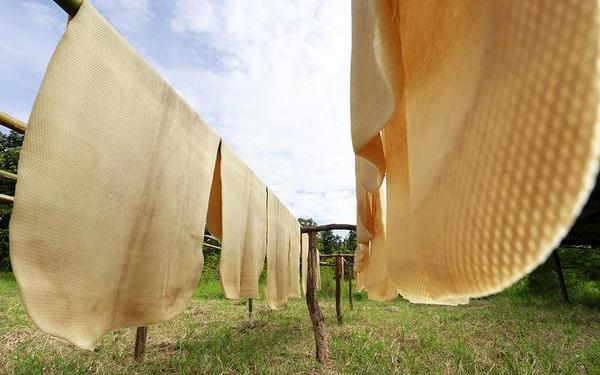KOCHI, JANUARY 30:
Exhibiting an upward trend in the last few days, natural rubber (NR) prices hit a record ₹158 per kg for RSS-IV grade in the Kerala spot markets on Monday.

Heavy rains in North Thailand, rise in oil prices, increased auto demand in China trigger rally
This would be the highest spot price of RSS-IV rubber (ribbed, smoked sheet), the most-traded variety, since January 2014.
Though the quoted price of ₹158 is the official figure released by the Rubber Board, sources in the trade told BusinessLine that non-tyre companies have started procuring the commodity even at ₹160 per kg and there were transactions even at ₹163-165 to meet the delivery contract for futures trade, which put the prices at ₹180 for April futures. Rubber Board officials attributed heavy rains in North Thailand (a key growing area) since November, speculative buying, rise in oil prices, increase in buying of vehicles in China, etc as the reasons for the sudden spurt in prices.
Farmers unhappy
However, the jump in prices has not brought any cheer to the farming community, as the rubber sector is at the fag end of the season, with summer set to start.
Following a supply crunch, farmers are unwilling to sell at the current level, anticipating a further rally in prices.
Normally, tapping for the new yield begins at the end of May after a two-month off-season period. However, this year, it will depend on the extended drought looming over Kerala, per the weather forecast, the sources added.
Tyre sector buying
According to George Valy, President of the Kottayam Rubber Dealers Association, tyre companies are aggressively procuring from the domestic market as the import cost of natural rubber is currently on the higher side.
However, the tyre industry has given its thumbs down to the price rally, saying that the rise in NR prices will impact the industry adversely.
Rajiv Budhraja, Director-General, Automotive Tyre Manufacturers Association (ATMA), said the industry is passing through a difficult phase since top-line growth has slowed.
With the increase in raw material cost, even the bottomline will be under tremendous pressure as NR is the prime raw-material for the tyre industry.
PC Cyriac, President, Indian Farmers Movement (Infam), said that rubber prices have so far not come to the international price level and Indian growers should be given the benefit of international prices for their produce.
This has not happened so far, he said and alleged that the tyre companies are suppressing prices. Today, the import price of rubber is ₹240 per kg, forcing companies to depend on domestic procurement to meet their production requirements.
Our Kottayam Correspondent adds: Spot rubber continued to explore further highs on Monday. RSS-4 improved to ₹160 (156) a kg, according to traders. The grade firmed up to ₹158 (156) and ₹155 (153) a kg respectively, according to the Rubber Board and the dealers.
February futures declined to ₹154.90 (159.17), March to ₹162 (166.34), and April to ₹169.47 (173.66) on the National Multi Commodity Exchange.
RSS-3 flared up at its February futures to ¥379 (₹224.72) per kg on the Tokyo Commodity Exchange.
Spot rubber rates (₹/kg): RSS-4: 160 (156); RSS-5: 152 (148); Ungraded: 130 (127); ISNR 20: 150 (148) and Latex (60% dry rubber content): 100 (97).






















